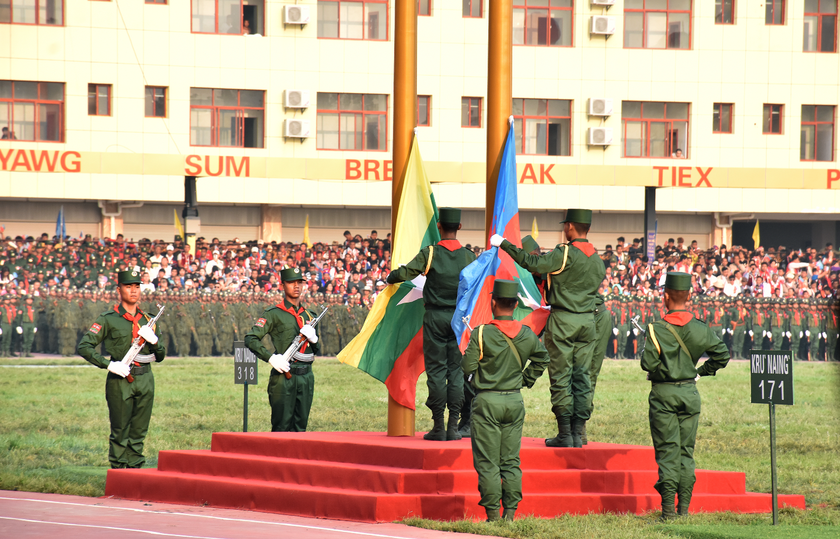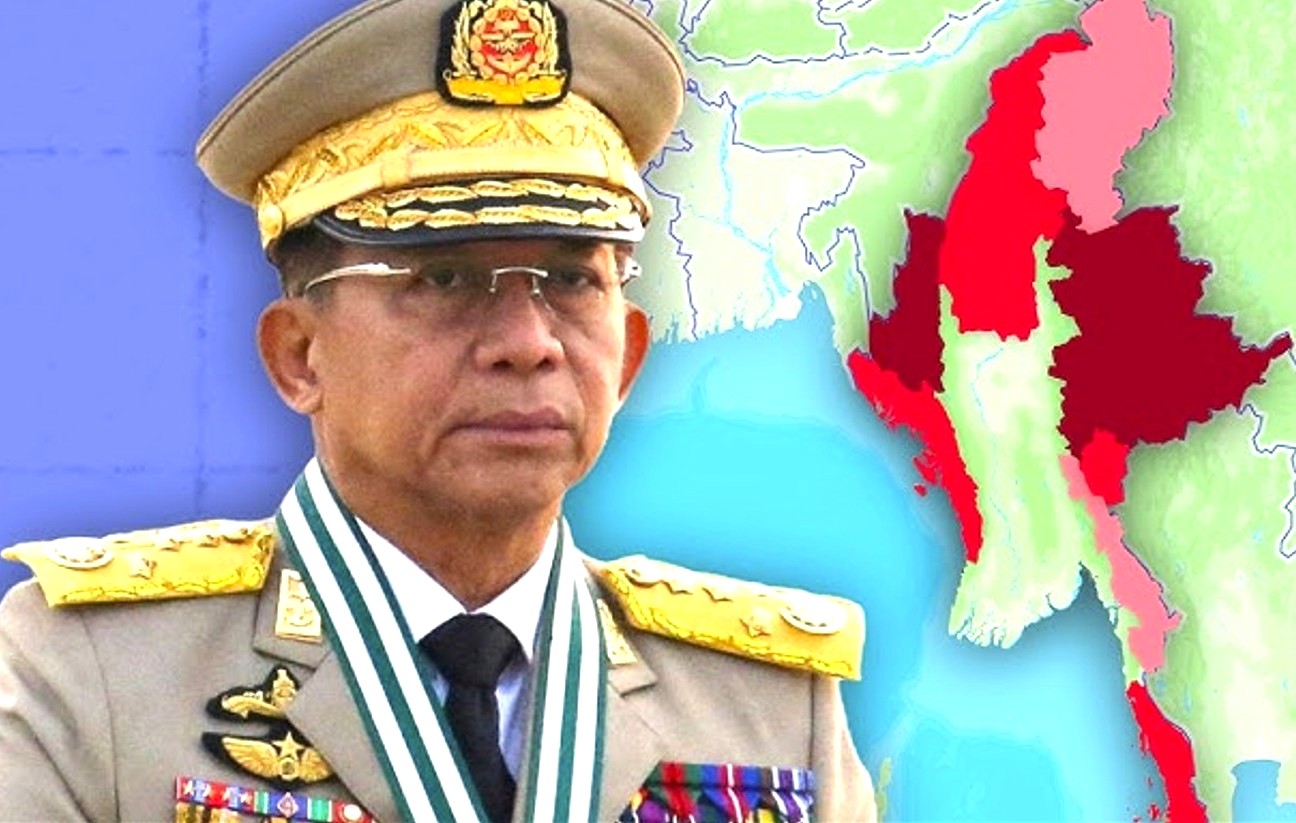CNI News
30 October 2025
Sai Htay Aung, Chairman of the Tai Leng (Shanni) Nationalities Development Party (TNDP), told CNI News Agency that the United Wa State Army (UWSA) should be granted State status, upgrading it from the current "Wa" Self-Administered Division.
Under the 2008 Constitution, six townships in Shan State—Hopang, Mongmao, Panwai, Narphan, Matman, and Pangkham (Panghsang)—are organized into two districts and designated as the "Wa" Self-Administered Division.
At a peace workshop held on October 17, Lieutenant General Yar Pyae, Chairman of the National Solidarity and Peacemaking Negotiation Committee (NSPNC), stated that if the UWSA desires a "Wa" State under the 2008 Constitution, they should contest the election and make their demand in the Hluttaw (Parliament).
Sai Htay Aung, Chairman of the TNDP, told CNI News Agency that the UWSA should be granted the requested State status because the "Wa" armed group possesses the necessary characteristics and mechanisms of a State. However, he noted that achieving Statehood would require multiple rounds of discussion in the Hluttaw.

The United Wa State Party
He stated, "Why? Because the 'Wa' was not included in the Shan Federation State before independence. It was only incorporated into Shan State after independence. At that time, perhaps because the 'Wa' region was extremely underdeveloped, or perhaps to avoid providing support, I can't say for sure, but the 'Wa' area was kept separate until Myanmar gained independence. Regarding the development of the 'Wa' region, it started to develop when the Communist Party of Burma (CPB) was defeated in the Bago Yoma mountain range and established its Northeast headquarters in Shan State. Therefore, now that the 'Wa' is asking for a State, and since it already possesses all the features and mechanisms that constitute a State, I believe that if the matter is discussed and negotiated within the Hluttaw, they can achieve it without bloodshed. Why? Because the Union government, or rather, the participants of the 21st Century Panglong, have agreed to build a Union based on democracy and a federal system. Given the federal system, I would like to say that the 'Wa' deserves to be granted State status by incorporating a framework for a new State into the Constitution."
If the UWSA wishes to obtain State status, it would only receive the level of State status prescribed by the 2008 Constitution.
Military and political analysts point out that because the 2008 Constitution centralizes executive, judicial, and legislative powers under the central government, the UWSA, which currently exercises its own administrative, judicial, and legislative powers, is already operating beyond the provisions of the 2008 Constitution.
The "Wa" armed group, which fought alongside the CPB, seized power from the CPB on April 17, 1989, established the United Wa State Party (UWSP), and subsequently agreed to a ceasefire with the government.
The armed wing of the UWSP is the UWSA, which is currently the strongest armed group among all domestic armed groups.

Senior General Min Aung Hlaing who is ruling Myanmar
U Khun Sai, a person involved in the peace process, told CNI News Agency that it must not be forgotten that the issue of granting the "Wa" the requested State status is not merely an affair of Shan State, but a matter for the entire Union.
He said, "The privileges currently enjoyed by the 'Wa,' and those enjoyed by Mongla, are many times greater than what Shan State currently has. Because they enjoy significantly greater privileges, whether they can accept a reduction or not is something the Shan people need to discuss among themselves. It is also something that needs to be discussed with all the nationalities across the entire Union, outside of Shan State. Without such a discussion, if the current status quo is maintained, other ethnic groups within Shan State will start to demand, 'We want to be like the Wa too.' Similarly, people in other States and Regions across the Union will also demand, 'We want to be like the Wa.' If this happens, how will all the people of the Union handle this situation? We need to collectively consider these issues. Therefore, we must not forget that the 'Wa's' current demand is not just an issue for Shan State; it is an issue for the entire Union."
Currently, the administrative, legislative, and judicial situations in the areas controlled by the UWSA are not under the control of the central government but are exclusively under the control of the UWSA.
Although the UWSA signed a Union-level ceasefire agreement with the government, it did not sign the NCA. Following the political change in 2021, the UWSA met and discussed with the Tatmadaw in response to its peace invitation, and UWSA delegations have also participated in peace forums.




